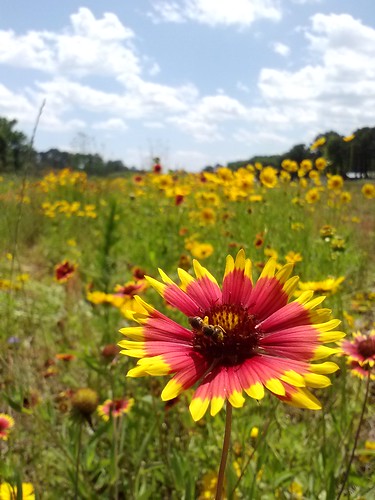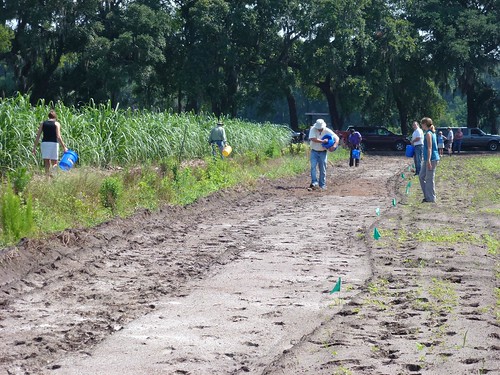
Eighty-five percent of all flowering plants depend on pollinators, like bees and bats, to reproduce.
But these critical pollinators are in trouble as habitat loss, disease, parasites and environmental contaminants are causing a decline of many species, including some of the more than 4,000 species of native bees in North America.
That’s why USDA’s Natural Resources Conservation Service (NRCS) in South Carolina and the Xerces Society, with the support of a Sustainable Agriculture Research and Education grant, are promoting the benefits of pollinators through hands-on workshops targeted to employees of NRCS, soil and water conservation districts, cooperative extension agents and many others involved in agricultural production.
Attendees of the pollinator workshops are introduced to the principles of pollinator biology, the economics of insect pollination, basic bee identification and evaluation of pollinator habitat.
They also discuss land management practices for pollinator protection, pollinator habitat restoration, plant selection, and financial and technical resources to support these efforts, among many other topics.

Lowcountry Local First is a Charleston-based nonprofit that promotes a shop-local approach to economic health in South Carolina. It is also the sponsor of the state’s first incubator farm, Dirt Works, where one of the training sessions took place. Workshop participants spread donated wildflower seeds by hand to establish pollinator habitat and captured bees to practice identification.
Everyone who attended gained a much greater understanding and appreciation for the amazing impacts of pollinators, and ways to improve their habitat with wildflower mixes.
This spring, Nikki Seibert, director of sustainable agriculture for Lowcountry Local First, was surveying the quarter-acre area where the seeds were planted and was delighted to see a field of flowers, bursting with color.
She wrote to NRCS to let them know about her discovery: “I was working out at the Dirt Works Incubator Farm when I realized that our pollinator habitat is thriving! All of this rain has worked to our benefit for sure.”
Seibert says she is grateful for the partnership with NRCS and Xerces because it helps “ensure farmers and landowners have all of the tools, training and support necessary to be productive and responsible stewards of the land."
Follow NRCS on Twitter.
Check out other conservation-related stories on the USDA blog.
